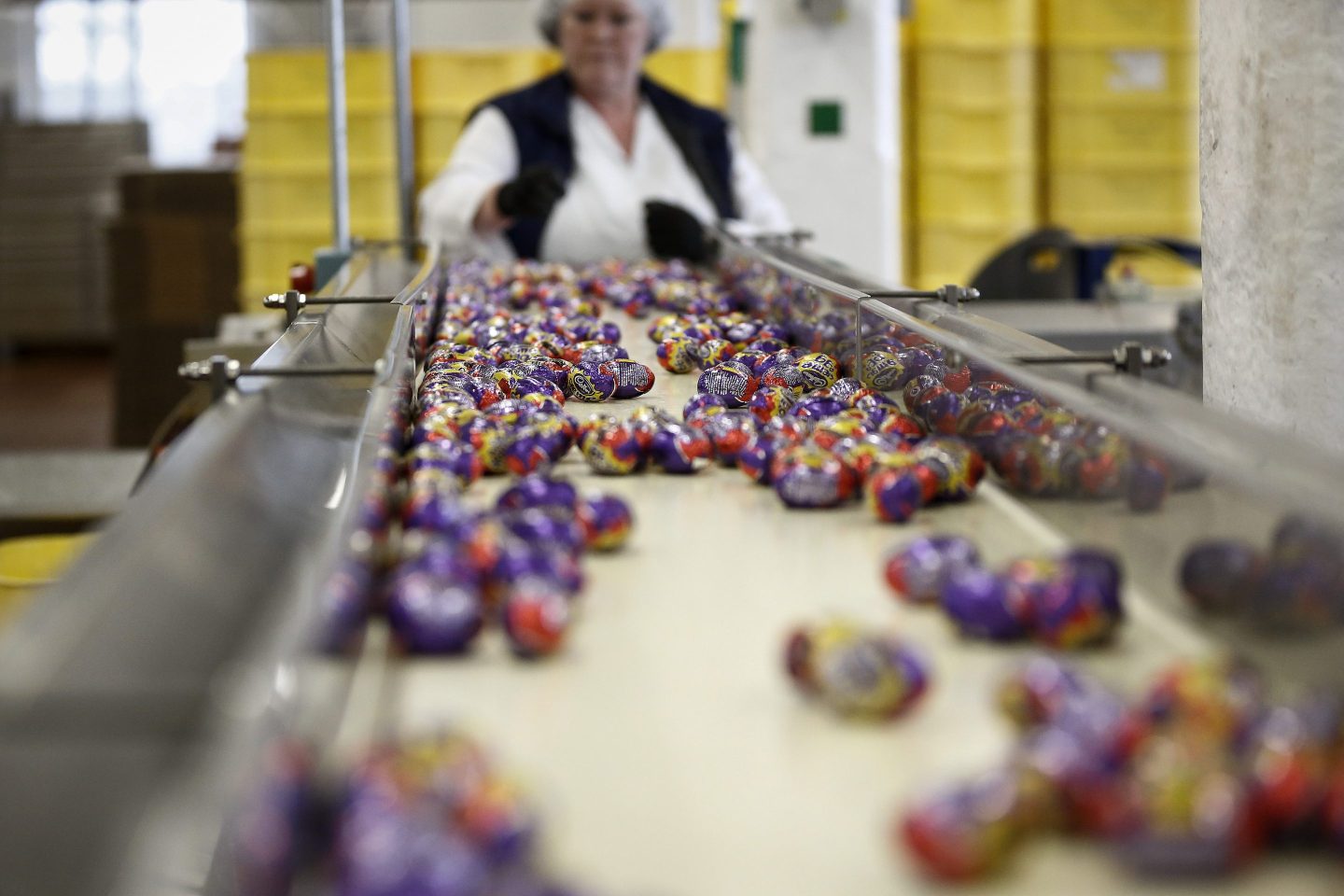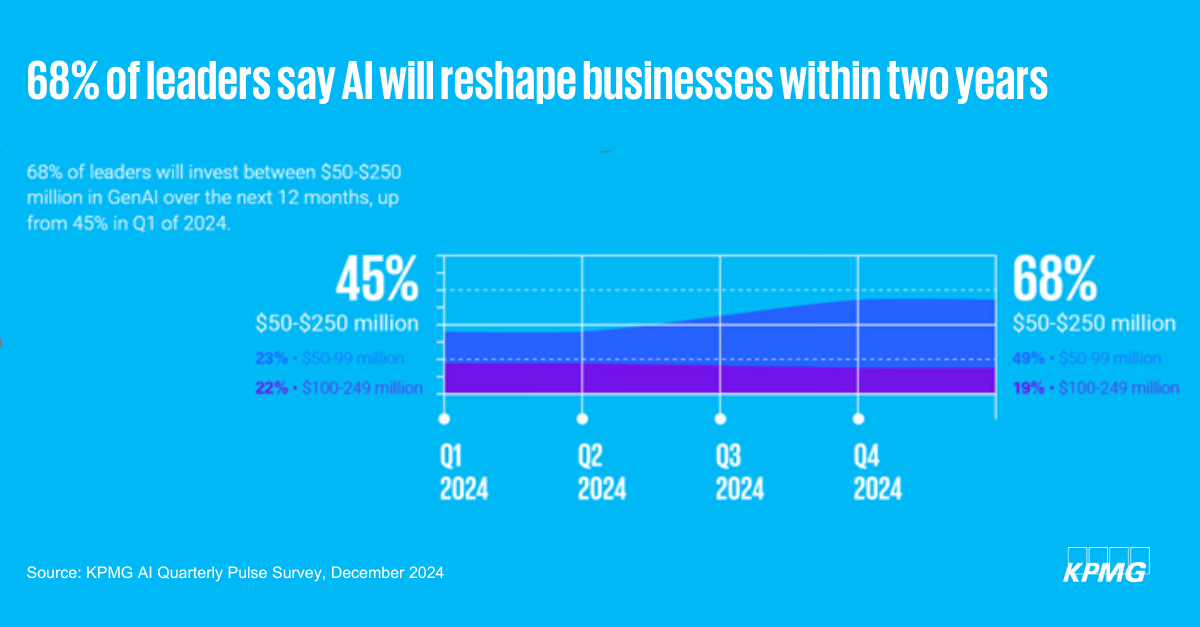After working at big banks including Citigroup and UBS, followed by a stint as information security for consumer goods giant Procter & Gamble, Kostas Georgakopoulos got an offer he couldn’t refuse from snack maker Mondelez International to run both its IT and cybersecurity operations.
“That was a pretty unique challenge,” says Georgakopoulos, who started at the company in 2021 as CISO and chief technology officer. “Part of the reason I came to Mondelez was the opportunity to do two different roles that have a lot of parallel tracks, but have their own uniqueness in terms of responsibilities.”
One early change he made was to add more cybersecurity expertise to Mondelez, which generated $36 billion in annual revenue for the latest fiscal year 2023 and ranks No. 115 on the Fortune 500. The company now has over 50 full-time cyber specialists, up from about 10 when Georgakopoulos joined, and this team manages all cyber platforms rather than hiring a third party to do that work on its behalf.
As CTO, Georgakopoulos has hired dozens of engineers globally who are proficient with cloud platforms including Amazon Web Services, Azure, and Google. While it has embraced a multi-cloud approach, the company last month designated AWS as its strategic cloud provider and has already migrated hundreds of workloads there—including hundreds of terabytes of data from finance, marketing and sales, and communications. “Our focus has been to exploit the automation that AWS has,” says Georgakopoulos.
For example, when moving a workload to the cloud, his team can add a ticket to ServiceNow that asks AWS to autonomously move a user’s identity, login, access to software, as well as micro-segmentation, a security method to manage employee access to data, applications, and other workloads. It can take less than 20 minutes to set this system up to create these user controls and privileges, and Mondelez says it can add hundreds or even thousands of servers that give workers access to applications or files.
Georgakopoulos says the bigger bet on AWS means lowering costs versus what competitors offered and creating a less complex environment to store data across the company. Working with AWS lets Mondelez “significantly” reduce the number of Microsoft servers it uses, thereby cutting software licensing costs and minimizing operational issues that have become more prevalent and have stung Mondelez and others.
The main one was last year’s global IT outage that impacted millions of Microsoft devices and servers connected to cybersecurity vendor CrowdStrike. Mondelez’s systems suffered more than five hours of downtime due to the CrowdStrike outage.
Also under Georgakopoulos, Mondelez has tested a number of generative artificial intelligence tools, including ChatGPT and Microsoft Copilot in an effort to increase employee productivity. But he says he’s unconvinced about those promised productivity gains and the hype about cost savings.
“It is a bit early when you look at the solutions that are available by the major cloud providers,” says Georgakopoulos. “We have not seen the [return on investment] ROI, at least that’s being marketed or sold by the industry.”
In the future, he expects his engineering team will be able to offload some mundane tasks to generative AI tools, though he says humans will remain in the loop. Unlike executives at some other companies, he doesn’t expect those efficiency gains to translate into fewer employees.
Georgakopoulos also expressed concerns about using AI to create images for functions like marketing, which he said could expose Mondelez to claims of intellectual property infringement. AI creates images that are based on the images used in the underlying model for training, and many model providers fail to get permission to use those images from image owners.
Integrating acquisitions is another focus for Georgakopoulos and his team, as Mondelez has in recent years bought protein bar brand Clif, Greek food maker Chipita, and snack brand Ricolino. Mondelez is also said to be considering a multibillion-dollar acquisition of Hershey, in what would be the company’s second attempt to buy the chocolate maker.
When new brands are brought into the fold, Mondelez focuses on integrating cybersecurity first, like deploying CrowdStrike on all devices from Clif or Chipita. Mondelez does allow individual brands to operate unique software if it feels that those legacy systems have some competitive advantages. But in general, the company wants everyone to use the same tools, to be more cost efficient.
“You have to standardize, you have to automate, and you have to take advantage of what works well for your business,” says Georgakopoulos. “I think we’ve taken a measured approach.”
John Kell
Send thoughts or suggestions to CIO Intelligence here.
NEWS PACKETS
OpenAI says $175B in global funds are up for grabs to support AI projects. Ahead of President-elect Donald Trump’s return to the White House, OpenAI outlined its vision for AI development in the U.S., touting an estimated $175 billion in global investment funds available. OpenAI advocated for lawmakers to lure those funds to the U.S. instead of letting the money flowing to China-backed projects. “Chips, data, energy and talent are the keys to winning on AI,” wrote OpenAI. It added, “as for any industry, we need common-sense rules of the road that safeguard the public while helping innovators thrive by encouraging investment, competition, and greater freedom for everyone.” OpenAI most recently raised $6.6 billion in October, a deal that roughly doubled its valuation.
Most IT managers expect to face challenges luring talent in 2025. Data engineers, senior software engineers, and software developers are the three most in-demand IT jobs for 2025, according to a report by management consulting firm Robert Half, with demand also high for roles involving cloud, database management, and systems engineering and administration. But industry news outlet CIO also reports that only 35% of IT professionals are actively searching for a new role, down from 49% last year. As a result, 90% of IT hiring managers say they are facing challenges finding the top talent they need.
“Cost Avoidance” is the new AI buzzword for tepid headcount growth. The Wall Street Journal, meanwhile, this week also looked at hiring trends in tech, focusing on how corporations are beginning to pair their AI initiatives with “cost avoidance,” or a more cautious approach to hiring workers versus spending on AI technology. Citing a December survey by consulting firm KPMG, the Journal reports that 68% of business executives say it was either “important” or “very important” to demonstrate returns on generative AI investments to investors. Separately, Meta on Tuesday became the first Big Tech player to announce layoffs this year—cutting 5% of the company's workforce by focusing on "low performers" who will be replaced by new hires.
Schools are becoming a target for cyberattacks. Over the past week, two separate school systems in the Netherlands and Utah were stung by separate cyber attacks. One hit a Dutch technical university that’s regarded as a talent feeder for chip machine maker ASML and the other affected educational software vendor PowerSchool in Salt Lake City, and several Utah schools. School cyber attacks have been on the rise, increasing 393% from 2016 to 2022 in the United States, according to nonprofit K12, which asserts that schools have become a target because they have extensive digital assets—names, birth dates, Social Security numbers—but often have inadequate cybersecurity infrastructure.
ADOPTION CURVE
CIOs are more in control of AI initiatives as spending keeps rising. A recent KPMG survey found that 68% of C-suite leaders from 100 U.S.-based companies with annual revenue of $1 billion or more expect to invest $50 million to $250 million in generative AI over the next 12 months, up from 45% of executives who projected that same level of spending on the flourishing technology a year ago. Chief information officers are increasingly steering these AI initiatives (71%), followed by CEOs (17%) and chief innovation officers (10%). The findings are a big shift from earlier in 2024, when nearly half of CEOs were said to be the primary leaders.
Among the other notable findings from the KPMG survey: Productivity is now the top ROI metric (79%), with profitability a close second. C-suite and executive managers are using generative AI more than middle managers and entry level employees. And today, only 7% of organizations have appointed board members with generative AI expertise, though 91% plan to do so.
JOBS RADAR
Hiring:
- Crunch is seeking a CTO, based in Brooklyn, N.Y. Posted salary range: starting at $200K/year.
- Pure Water is seeking a head of information technology, based in the greater Phoenix area. Posted salary range: $150K-$220K/year.
- Walmart is seeking a director of technology strategy, based in Bentonville, Ark. Posted salary range: $110K-$286K/year.
- Alo Yoga is seeking a director of DevOps and infrastructure, based in Beverly Hills, Calif. Posted salary range: $200K-$300K/year.
Hired:
- Shake Shack has appointed Justin Mennen to the role of chief information and technology officer, reporting to CEO Rob Lynch. Mennen will oversee all aspects of technology for the restaurant chain, including steering the IT department and implementing tech innovation. Most recently, Mennen was chief digital and technology officer at Rite Aid and previously held leadership roles at Estée Lauder and Dell Technologies.
- Advance Auto Parts named Shweta Bhatia as CTO, effective immediately, joining the automotive parts retailer from Dollar General, where she was senior vice president of technology. Prior to her tenure at the discount retailer, Bhatia was vice president of technology at both Walmart International and Kohl’s.
- CNH appointed Luis Abreu to be CIO, joining the agricultural machinery company’s global leadership team and bringing over two decades of leadership experience with CNH and its predecessor companies. He began his career in IT in 2005 at truck and bus manufacturer Iveco and was acting CIO at CNH since last summer.
- CoreWeave announced the appointment of Sandy Venugopal as CIO, where she will be responsible for leading the cloud-computing provider’s IT and digital transformation strategy. Venugopal joins the startup after most recently serving as CIO of cybersecurity company SentinelOne. She was also previously CIO at Uber Technologies and held various leadership roles at LinkedIn.
- GroundTruth promoted Matt Knight to CTO, rising from his prior role as SVP of product and technology. Smith initially joined the company, which helps advertising campaigns target their ads to specific audiences and devices, in 2021 through the acquisition of adtech marketplace Addy. Knight also previously held leadership roles at Computer Associates.
- Cypris named Chris Staymates to the role of CTO of the software provider for research and development teams, after most recently serving as chief innovation officer at Stax Payments, where he expanded the payments company’s product and engineering teams from 8 to 120. Staymates has served as CTO at Stax and Izea, a marketing software company.
- Travelport named Andrew Jordan as chief product and technology officer, joining the U.K.-based travel bookings company from Element Materials Technology, where he was CTO. Previously, Jordan was also CPTO at Carlson Wagonlit Travel and held leadership roles at companies like NBCUniversal and Thomson Reuters.
- Custom Ink appointed Arthur Chapin as chief product, design, and technology officer, leading those centralized functions for the online retailer and reporting directly to CEO David Doctorow. Most recently, Chapin was chief growth officer at Move Inc. and Realtor.com and also spent two decades at various leadership roles at Expedia Group.













